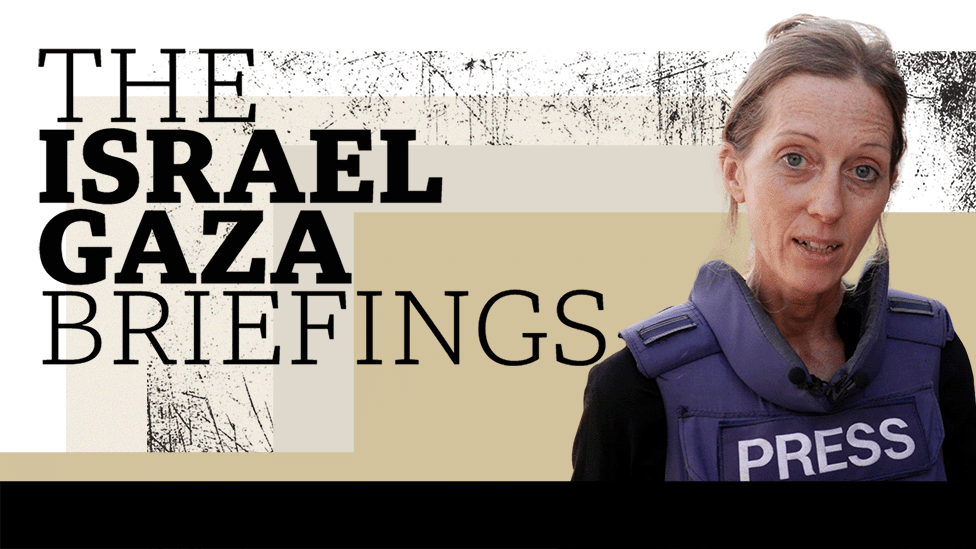Gaza health ministry says Israeli strikes kill 110 in Jabalia
- Published
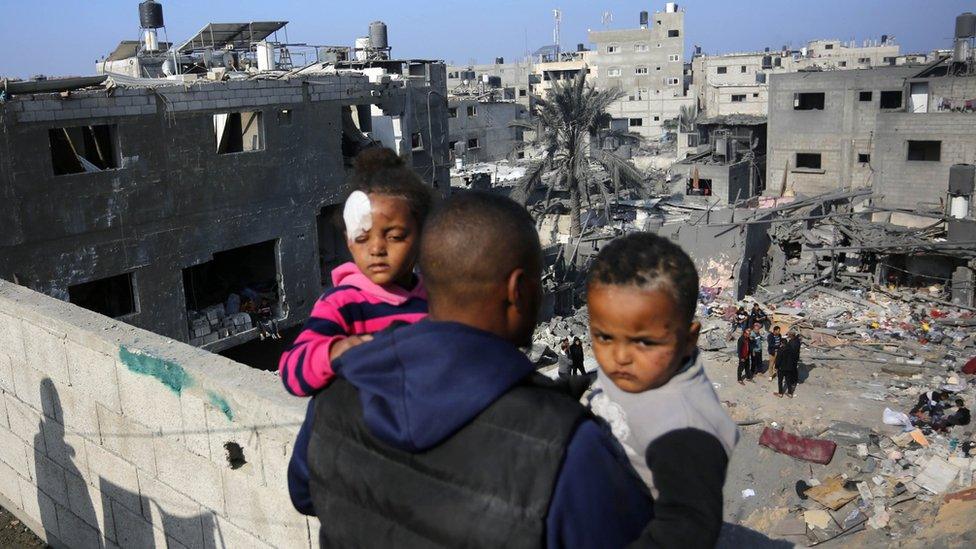
Eight reportedly killed in an air strike on a home in Nuseirat refugee camp, in central Gaza
At least 110 people have been killed in Israeli air strikes in northern Gaza's Jabalia area, the Hamas-run health ministry says, as fighting continues across the Palestinian territory.
Fifty people were reportedly killed and dozens trapped under rubble when three homes in Jabalia refugee camp were hit.
Videos showed the bodies of small children lined up at a medical centre.
The Israeli military said it had been conducting operations against Hamas "terrorist infrastructure" in Jabalia.
It came as the US defence secretary arrived in Tel Aviv for talks with Israeli leaders that were expected to focus on how to lower the intensity of the fighting to protect civilians.
The UN Security Council was also expected to vote later on a resolution calling for an "urgent and sustainable cessation of hostilities", amid reports of discussions on a potential new deal to secure the release of more Israeli hostages held by Hamas.
Gaza has been devastated by 10 weeks of war triggered by an unprecedented attack by Hamas gunmen on southern Israel on 7 October, in which at least 1,200 people - mostly civilians - were killed and about 240 taken hostage.
Since then, more than 19,400 people have been killed in Gaza, about 70% of them women and children, according to the Hamas-run health ministry.

Witnesses and local journalists said Israeli missiles struck a block of houses in Jabalia refugee camp where three families had been living on Sunday night.
On Monday morning, Palestinian media cited the Hamas-run health ministry's director general as saying that at least 50 people had been killed when the homes of the al-Bursh and Alwan families were bombed. He added that it brought to 110 the death toll in the wider Jabalia area since Sunday.
Local journalists also posted videos on social media showing what they said were the bodies of nine children on the floor of the Jabalia Medical Centre. One identified the children as members of the al-Bursh and Suleiman families.
Another 20 to 30 people were reportedly trapped beneath the rubble of the destroyed homes.
BBC Gaza correspondent Rushdi Abu Alouf, who is currently in Istanbul, says verifying reports from the north is very difficult because of communication and access problems.
But, he adds, Jabalia refugee camp has been a focus of Israeli ground operations over the past few weeks. And air strikes have intensified since Israeli tanks reportedly pulled out of the camp two days ago.
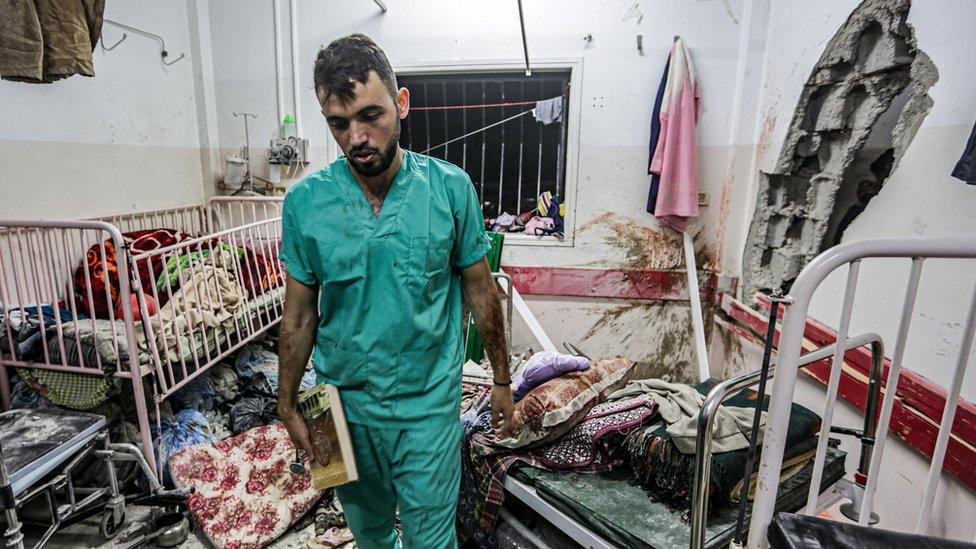
Gaza's health ministry said an Israeli tank shell struck the Nasser Hospital in Khan Younis overnight
When asked about the Jabalia strikes by AFP news agency, the Israel Defense Forces (IDF) stressed that it went to great lengths to avoid civilian casualties.
"When planning a target, the IDF devotes significant time and resources to preparing the attack and where feasible, uses various tools, including advance warnings, roof knocking, street knocking, target clearing operations and a variety of professional calculations," it said.
The IDF separately announced that its troops had been conducting operations in Jabalia and that they had uncovered cash worth almost $1.4m (£1.1m) in suitcases alongside weapons in the home of a senior Hamas figure.
Gaza's health ministry also said that a 13-year-old girl was killed when an Israeli tank shell hit the maternity building of Nasser Hospital in the southern city of Khan Younis on Sunday night.
The girl, Dunia Abu Mohsen, had been receiving treatment after losing a leg in a previous strike in al-Amal that killed her parents, brother and sister.
Another eight people, including journalist Haneen al-Qashtan, were reportedly killed in a strike in Nuseirat refugee camp, in central Gaza.
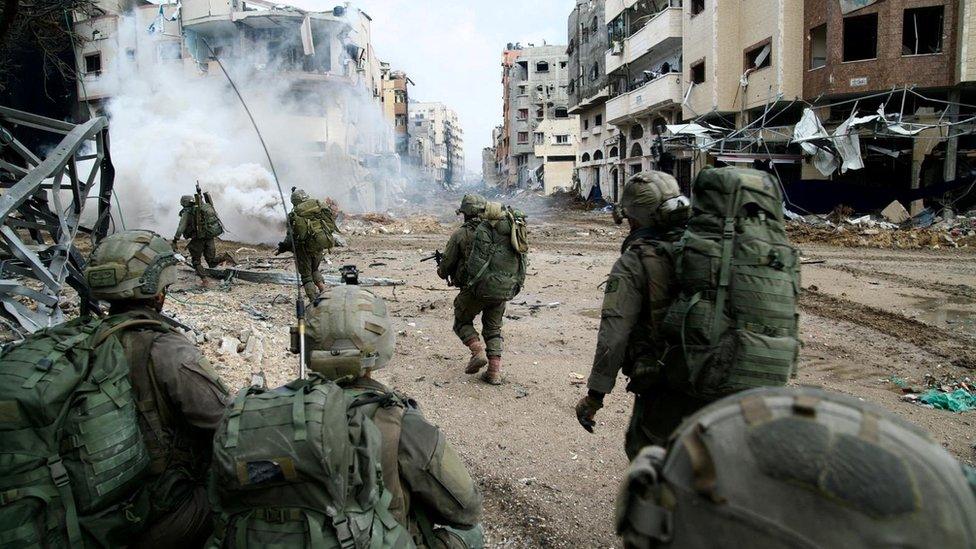
Israel is facing calls from the US to scale back its major combat operations in Gaza
US Defence Secretary Lloyd Austin was expected to tell Israel's Prime Minister Benjamin Netanyahu and war cabinet in their meetings on Monday that Israel had to move away from its major combat operations to a more limited conflict targeting Hamas while shielding civilians.
At a news conference with Israeli Defence Minister Yoav Gallant, Mr Austin said protecting Palestinian civilians in Gaza was "both a moral duty and a strategic imperative".
Asked about a transition to lower intensity warfare, he stressed: "This is Israel's operation, and I'm not here to dictate timelines or terms."
The UK, Germany and France added to the growing global pressure for a ceasefire over the weekend, saying that too many civilians had been killed.
European Union foreign policy chief Josep Borrell echoed those comments on Monday, saying: "We are witnessing an appalling lack of distinction in Israel's military operation in Gaza."
In Israel, there are calls for any pause in the fighting to be linked to a new hostage release deal, after last week's mistaken killing by Israeli forces of three men who had been held captive in Gaza.
In another development on Monday, Human Rights Watch accused Israel's military of "using starvation of civilians as a method of warfare".
"Israeli forces are deliberately blocking the delivery of water, food and fuel, while wilfully impeding humanitarian assistance, apparently razing agricultural areas, and depriving the civilian population of objects indispensable to their survival," it alleged.
Israeli government spokesman Eylon Levy called the report "a lie".
"Israel has excess capacity to inspect more than twice as many aid trucks as are entering Gaza. We're still pumping water into Gaza through two pipelines and have placed no restrictions on entry of food and water. Direct your anger to Hamas, which hijacks aid," he wrote on X, formerly known as Twitter.

More on Israel-Gaza war
Follow live: Latest updates
History behind the story: The Israel-Palestinian conflict

Related topics
- Published18 December 2023
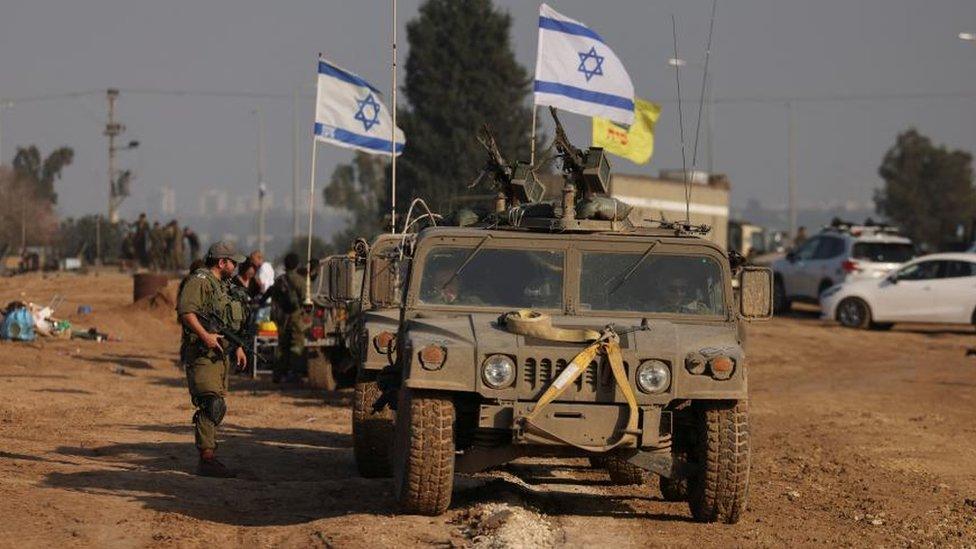
- Published18 December 2023
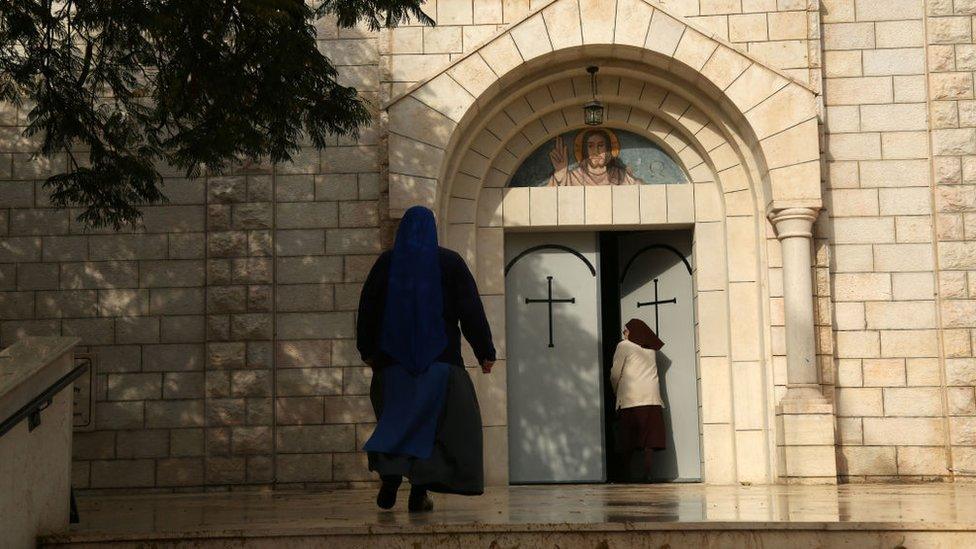
- Published18 December 2023
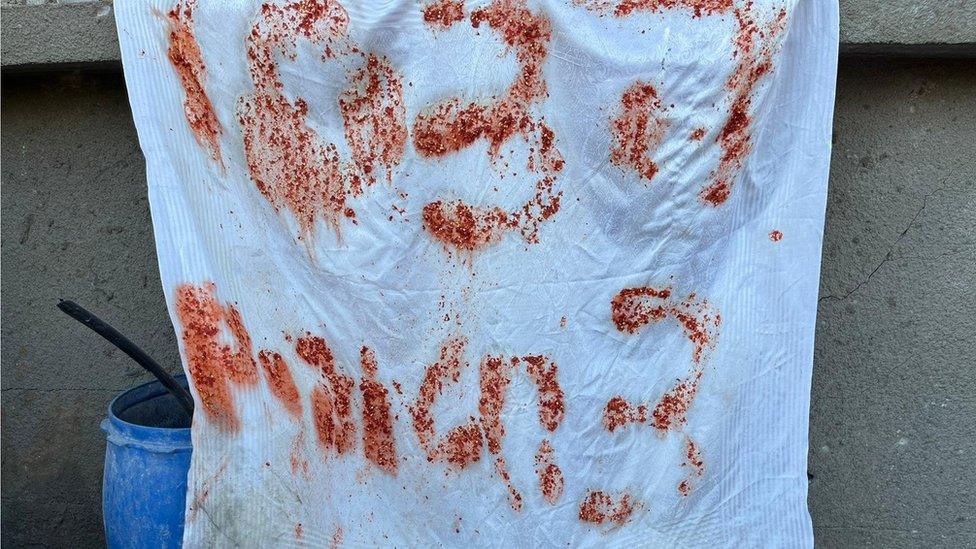
- Published16 December 2023
